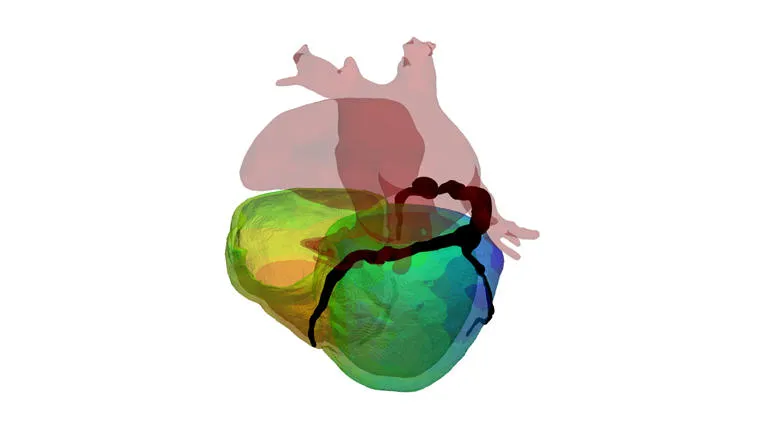The aim of this project is to use digital twins, that create a virtual model of specific patients, to predict treatment response for heart failures so that the outcome might be known before a decision is made.
Prof Steven Niederer, School of Biomedical Engineering & Imaging Sciences
10 December 2019
€1,9m ERC grant awarded for virtual heart models research
Heart researcher Prof Steven Niederer has received a consolidator grant of €1,988,927 from the European Research Council (ERC) to fund research investigating the development of virtual heart models to better simulate therapy options for patients suffering from heart conditions. The ERC Consolidator Grants are awarded to outstanding researchers with a scientific track record showing great promise.

Prof Niederer’s project, Predicting Outcome of Rate or Rhythm Control in Patients with Atrial Fibrillation and Heart Failure, explores models, simulation and predictions which have a significant role to play in the future of medicine.
Heart failure, where the heart is unable to maintain a necessary cardiac output, is a progressive and prevalent disease.
Up to 40% of heart failure patients also suffer from atrial fibrillation where irregular electrical activation of the atria results in an increased and irregular heart rate and reduced cardiac pump function.
When atrial fibrillation and heart failure are both present, treatment is complicated. The therapy of one condition is both informed and restricted by the therapy of the other, requiring the physician to tailor treatment to the particular balance of pathology unique to each patient.
Digital twins encode known physiology and physical laws within mathematical models of individual patients’ hearts with atrial fibrillation and heart failure.
All therapy options are then simulated for an individual patient to identify the best treatment for that individual based on their unique anatomy, physiology and disease.
“It is a great honour to have received this consolidator grant which is funding this important research that will have a great impact on the diagnosis and treatment of heart conditions,” Prof Neiderer said.
The ERC received 2,453 research proposals out of which approximately 12% will be funded.
This new round of grants should create around 2,000 jobs for postdoctoral fellows, PhD students and other staff working in the grantees' research team.
Knowledge developed in these new projects will allow us to understand the challenges we face at a more fundamental level, and may provide us with breakthroughs and innovations that we haven’t even imagined. The EU’s investment in frontier research is an investment in our future, which is why it is so important that we reach an agreement on an ambitious Horizon Europe budget for the next multiannual budget. More available research funding would also allow us to create more opportunities everywhere in the EU - excellence should not be a question of geography.
Mariya Gabriel, European Commissioner for Innovation, Research, Culture, Education and Youth
